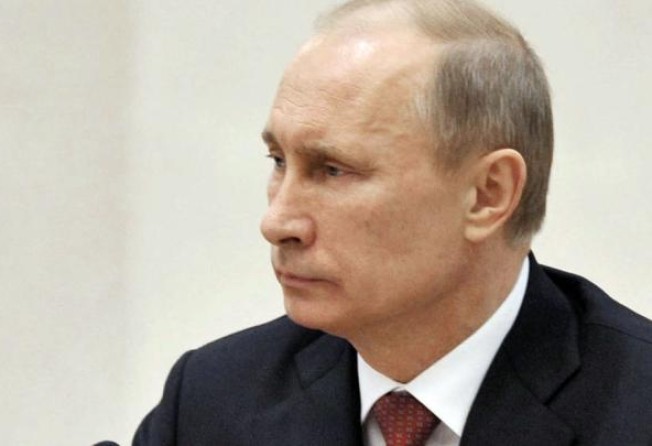Vladimir Putin's anti-corruption drive met with cynicism
Fears grow that bid to curb corruption is a PR gambit - and may even mask Kremlin infighting

More than 200 years ago, the renowned Russian historian Nikolai Karamzin summed up the situation in his country in two words: "They steal."
They still do, and the news in Russia lately has been dominated by one high-profile corruption scandal after another.
Allegations of wrongdoing have reached high into the defence and agriculture ministries and the Russian space programme, among other institutions. Nearly nine in 10 Russians say corruption is the nation's biggest problem.
The spate of cases has led to a cynical argument among politicians, analysts and people on the street: has President Vladimir Putin, who has long talked about combating corruption, finally turned from words to deeds? Or is the apparent crackdown a mere public relations gambit or, worse, a sign of behind-the-scenes warfare among powerful interests close to the Kremlin?
It may not matter much to Feofan Bondarenko, a pioneering businessman who applauds Putin's apparent campaign against graft even as he finds himself caught up in a nightmarish corruption case.
"I could never imagine," he said, "that I would live to be charged with fraud."
Bondarenko's case reflects not just the depth of corruption but also the shifting nature of its winners and losers.
Sitting in his cosy office in a downtown mansion protected by hired police, Bondarenko described how, for more than two decades, his company, Soyuz (meaning "union"), successfully invested in an array of products, from chicken to vodka to aeroplanes.
In 2007, his company invested about US$8.3 million in a private bank. To guarantee the deal, he said, the bank put up as collateral a two-storey house in central Moscow. In 2009, police raided the bank and discovered that its vaults were empty. The banker was arrested on charges of illegal banking activities and money laundering.
With his investment in the bank now worthless, Bondarenko sank more than US$2 million into the reconstruction of the house in an effort, he said, to enhance its value. But when charges against the banker were somehow dropped 14 months later and he emerged from custody, he said he had never agreed to the house deal and that his signature on the document must be a forgery.
The tables turned, Bondarenko was charged with fraud last yaer. He now risks losing real estate valued at more than US$23 million and could go to jail for up to 10 years, assuming that he lives that long.
"I have no doubt we are dealing with a huge corruption factor here," he said. On that, everyone would agree.
Bondarenko's case is just one drop in a sea of corruption that Russians experience on a daily basis.
Recent polls conducted by Levada polling agency show that fewer than one-third of the people trust Russian law enforcement and only about 20 per cent trust Russian courts. Eighty-eight per cent consider corruption to be the country's main problem.
Transparency International, which conducts annual surveys of international corruption, ranked Russia 143rd out of 183 nations on its most recent Corruption Perceptions Index.
"What we see today is the implementation of Putin's plan to make peace with the active part of our society, which has challenged Putin over this past year, accusing his regime of corruption, among other things," said Stanislav Belkovsky, president of the National Strategy Institute, a Moscow-based think tank. "But this won't help him to distance himself from all these crimes, as the active and thinking Russian people will continue to associate him with corruption whatever he does now."